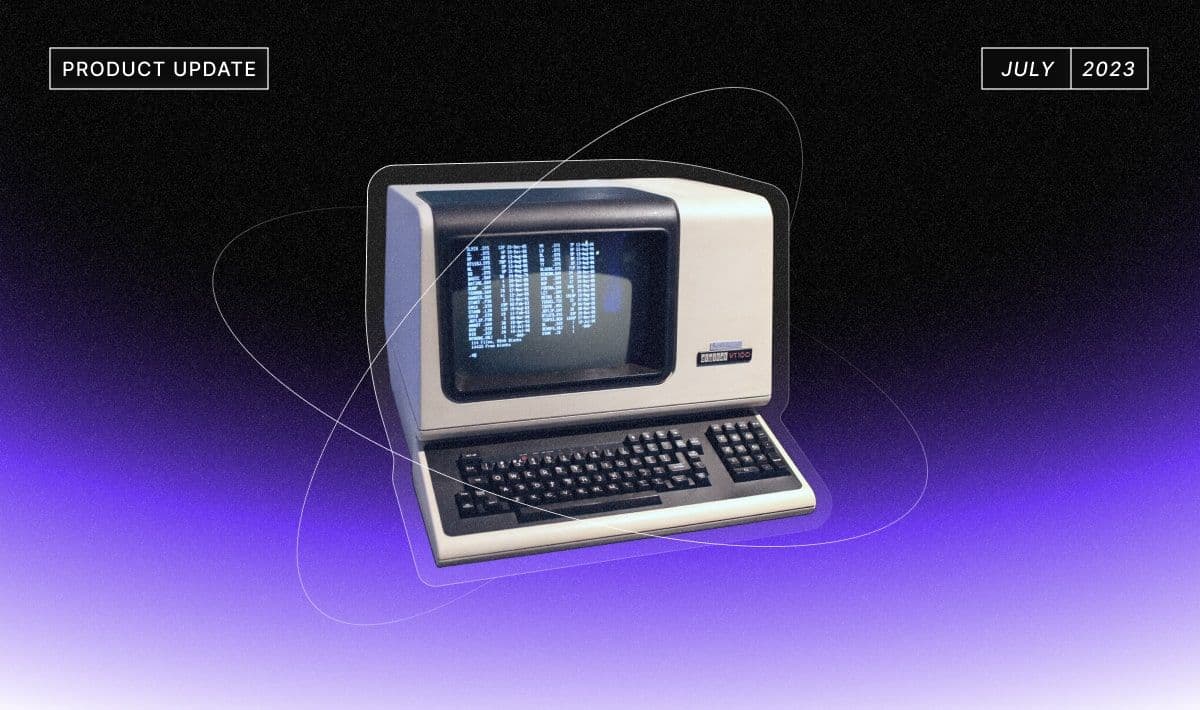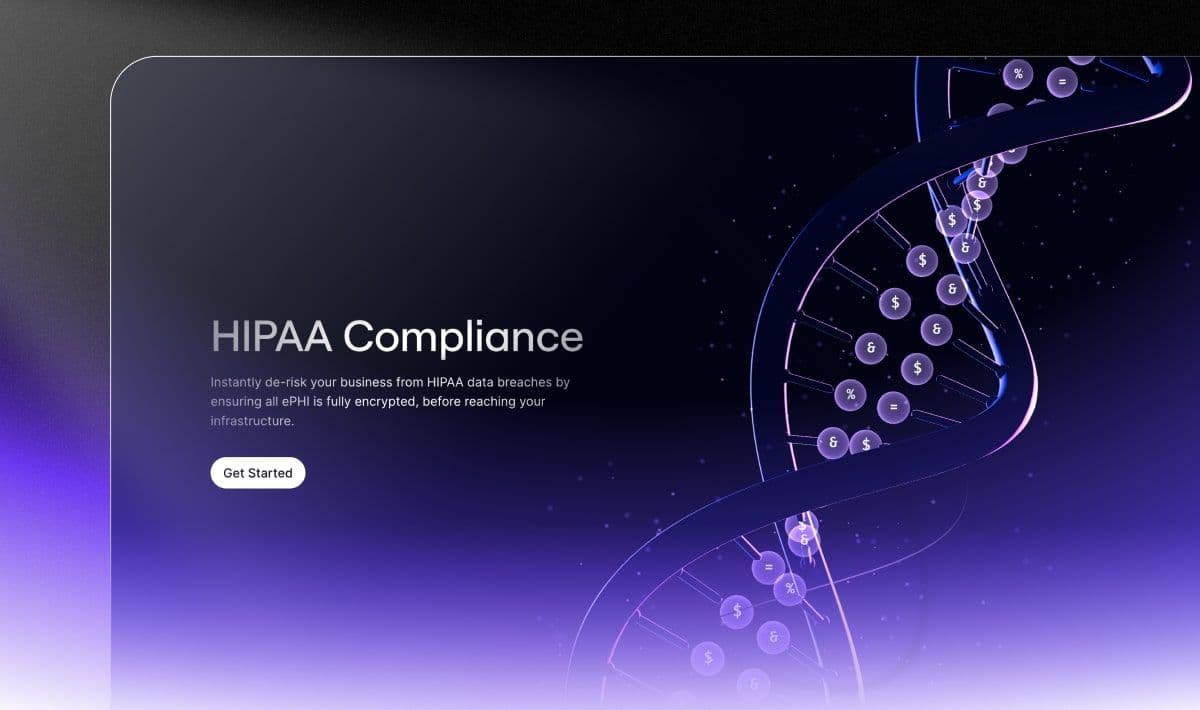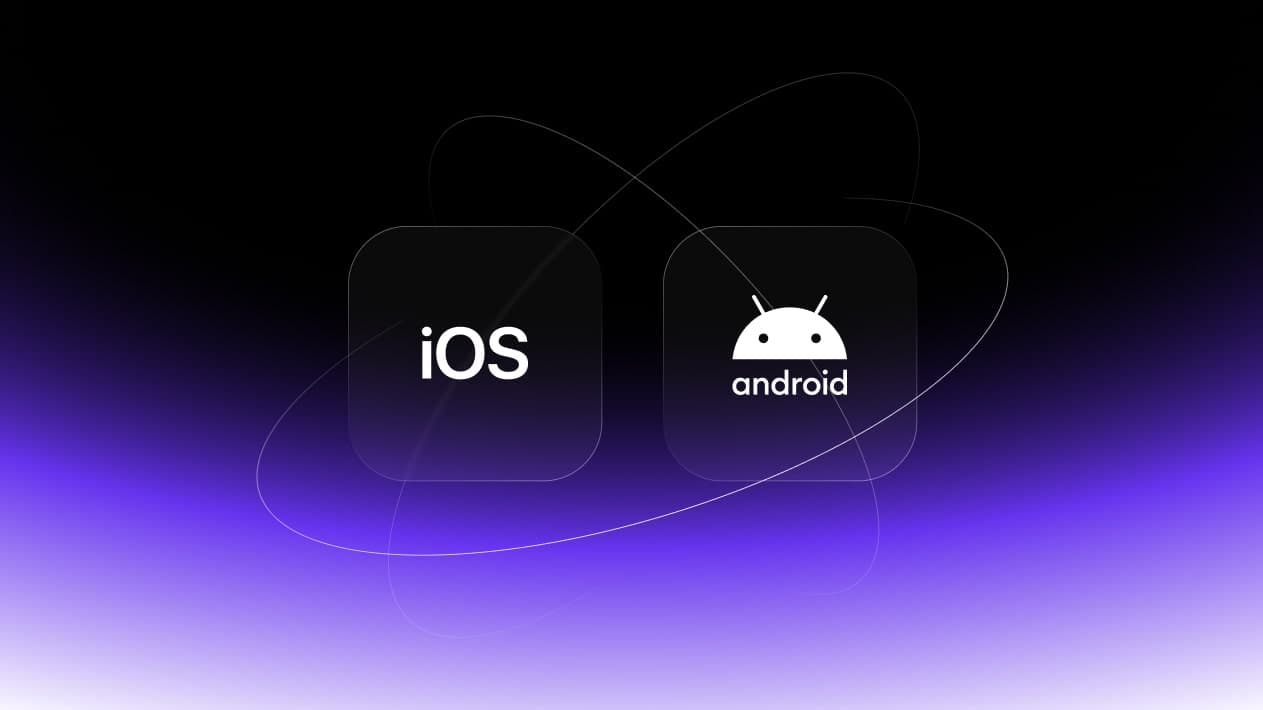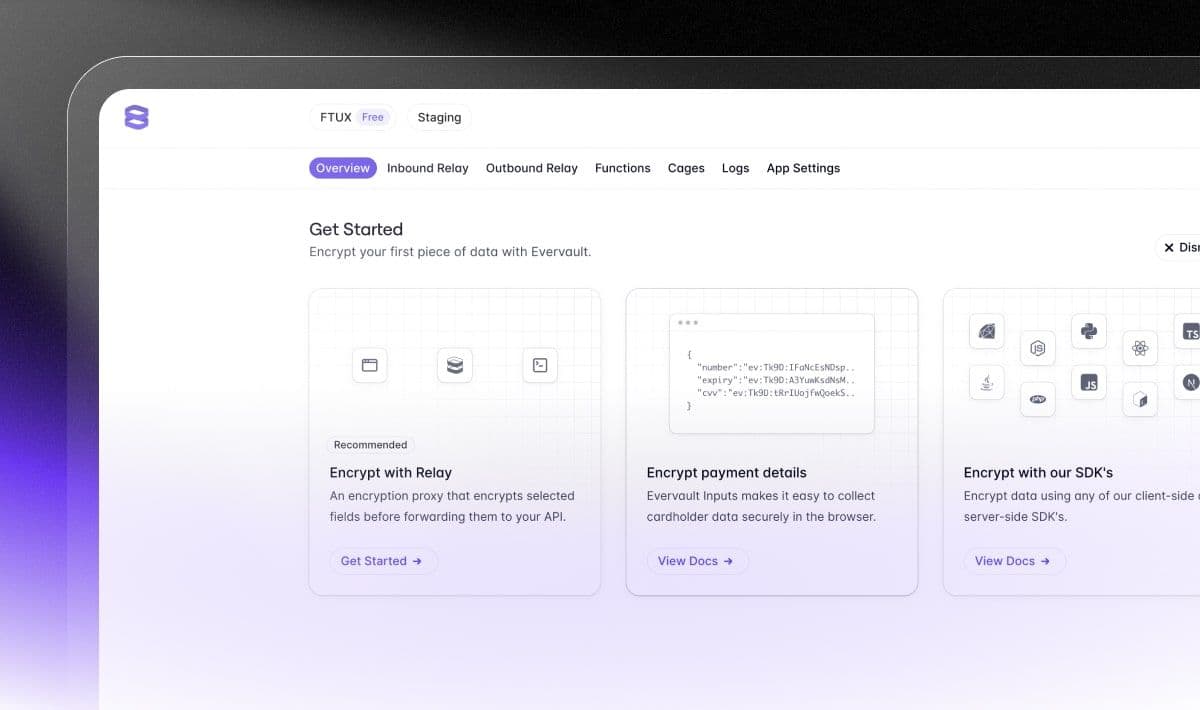Beyond payment tokenization: Why developers are choosing Evervault's encryption-first approach
How Evervault’s dual-custody encryption model eliminates the fundamental limitations of traditional tokenization for PCI compliance


HIPAA compliance, Mobile SDKs, FTUX and more. Our team has been hard at work, see what’s new in the Evervault world.

While advancements in Healthtech have resulted in a better experience for individuals, it’s also resulted in Healthtech companies accumulating vast amounts of highly sensitive data and enormous risk exposure. Our Head of Compliance, John, wrote extensively on the topic here.
Following this trend, we’re seeing a lot of companies turning to Evervault to secure their customers’ healthcare data (ePHI) and become HIPAA compliant quickly. Last month, we launched our HIPAA Compliance use case to shed some light on the process of using Evervault to become compliant.

We're excited to announce that our Mobile SDKs are now in beta for Android and iOS! The SDKs will support all of Evervault’s existing encryption operations, as well as Inputs for customers who require PCI compliance. We’ll be rolling out the SDKs to a select list of beta customers over the coming weeks. If you’re interested in joining the beta and getting access to the SDKs, just reach out to support@evervault.com.

Evervault is technology-agnostic and configurable for a range of encryption and data security use cases. Although this is a positive, but we don’t want the new user to feel overwhelmed.
We spent some time last month polishing our First-Time User Experience within the Evervault dashboard. The improvement seeks to guide the new user towards some common encryption patterns and use cases, hopefully reducing their time-to-first-encrypt™.
X-Forwarded-For header now contains the Client IP. When TLS termination is disabled, the client IP can be forwarded using proxy protocol. This can be enabled using an environment variable.
We released a bunch of great content this month — here are some of our favorites: